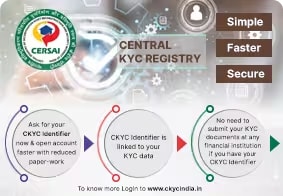Enjoy Zero Charges on All Commonly Used Savings Account Services
- About Us
- MD & CEO letter about the bank
- MD & CEO
- Our History
- Letter to Shareholders on the 1st Annual Report after Merger
- Letter to Shareholders on the 2nd Annual Report after Merger
- Letter to Shareholders on the 3rd Annual Report after Merger
- Letter to Shareholders on the 4th Annual Report after Merger
- Board of Directors
- Awards & Accolades
- News Room
- Investors
- Careers
- ESG
-
Customer care hotlineCall 1800 10 888
-
As per amendment in the Income Tax Rules, PAN or Aadhaar are to be mandatorily quoted for cash deposit or withdrawal aggregating to Rupees twenty lakhs or more in a FY. Please update your PAN or Aadhaar. Kindly reach out to the Bank’s contact center on 1800 10 888 or visit the nearest IDFC FIRST Bank branch for further queries.
-
-
FinFIRST Blogs

With several investment options in India, choosing the right one can be tricky. Even though the investment schemes offered by private financial institutions are investing select few government investment schemes can deliver safe, guaranteed returns. So, what are the ideal options for investment?
The Government of India has introduced several schemes that are not only profitable but also safe for people belonging to all classes. Since zero or minimal risk is involved with government investment schemes, you can deposit your savings without any worries. If you are new to the investment world and want to know about the investment options offered by the government, here's a guide that can help you out.
1. Public Provident Fund
The future is something we can neither predict nor escape, but planning can help. Public Provident Fund (PPF) is one of the best investment scheme offered if you want to save money for life after retirement. It has gained popularity among middle-class families that can afford to save a small portion of their monthly income and later get higher returns. The interest rate offered by PPF is considered the highest in the market and is also free from income tax, making it more profitable for small savers.
Use an online PPF calculator if you are unsure how much return you will get from PPF by saving a certain amount of money every year. Depending on your tenure, you can apply for a loan against the money saved in your PPF after 3-6 years of creating the account.
2. Government Securities (G-Secs)
Most common Government securities provide a fixed rate for fixed tenure. from 91 days to 40 years, depending on the type of security it is. The most common Tax-free bonds backed by GOI is of 10 to 20 Years. Different types of G-secs include RBI Ffloating-rate Savings bonds, bonds, Fixed Coupon G-sec, and so on. However, be careful before investing in these bonds, as the terms and conditions of G-secs differ from what is followed by other government investment schemes. Every security comes with a different features, so read the fine print carefully. Apart from this, there is minimal risk involved with government securities, and you can invest in them without any worries.
3. Sovereign Gold Bonds (SGBs)
Investing in gold has always been popular among Indians, though experts worldwide disagree. They feel investing in physical gold might result more often in loss than profit. In 2015, the Government of India launched a new investment scheme, called Sovereign Gold Bonds or SGBs, issued solely by the Reserve Bank of India. Unlike physical gold, SGBs are easy to store, are not theft-prone, and do not involve making charges. When you buy gold in the form of paper, you get the exact amount with interest as a return upon maturation. Buying SGBs is far more secure and profitable than investing in physical gold.
4. National Savings Certificate (NSC)
If you are interested in a medium term investment plan, National Savings Certificate NSC is one of the other government backed scheme. The minimum investment you can make under this plan is Rs 1000 and Rs. 100 there of, with no maximum limit. Affluent people often choose NSC because it gives returns after a lock-in period of 5 years. there is no fixed interest rate offered in this scheme .The interest rate depends on inflation and other factors affecting the country's economy. Still, it is an excellent investment as the certificate can also be used as collateral for getting loans in the market.
5. National Pension Scheme (NPS)
NPS is voluntary retirement savings scheme laid out to allow the investors to make defined investment towards planned savings. It is one of the lowest cost pension schemes with minimal administrative charges and fund management fees. You have multiple options to chose such as stocks, corporate bonds, government securities and select few alternate asset class. Investment into NPS comes with additional tax advantage too. This is a good long-term retirement plan to look for. This being market linked, returns may vary.
6 Post Office Monthly Income Scheme (POMIS)
Post Office Monthly Income Scheme is great for those who want to make an investment between Rs 1500 and Rs 4,50,000. It offers decent returns as the interest earned is comparatively higher than what is offered by other government investment schemes. The interest rate is fixed, so your profit depends on the amount you deposit every month into the account.
Conclusion
This is a great time to invest in government investment schemes. You can also create an IDFC FIRST Bank savings account for depositing money and later use that money for better investments. With an IDFC FIRST Bank savings account, you get various benefits, such as higher interest rates, a withdrawal limit of Rs 2 lakh, and more.
Invest in a government scheme today and ensure a better future tomorrow!
Disclaimer
The contents of this article/infographic/picture/video are meant solely for information purposes. The contents are generic in nature and for informational purposes only. It is not a substitute for specific advice in your own circumstances. The information is subject to updation, completion, revision, verification and amendment and the same may change materially. The information is not intended for distribution or use by any person in any jurisdiction where such distribution or use would be contrary to law or regulation or would subject IDFC FIRST Bank or its affiliates to any licensing or registration requirements. IDFC FIRST Bank shall not be responsible for any direct/indirect loss or liability incurred by the reader for taking any financial decisions based on the contents and information mentioned. Please consult your financial advisor before making any financial decision.
The features, benefits and offers mentioned in the article are applicable as on the day of publication of this blog and is subject to change without notice. The contents herein are also subject to other product specific terms and conditions and any third party terms and conditions, as applicable. Please refer our website www.idfcfirstbank.com for latest updates.


 What's special about us
What's special about us



















